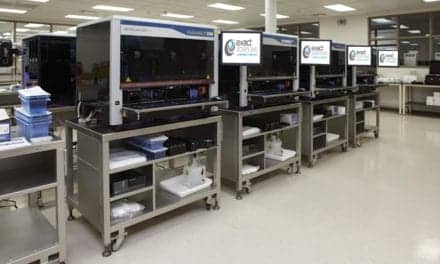Adaptive Biotechnologies Corp., a commercial-stage biotechnology company that aims to translate the genetics of the adaptive immune system into clinical products to diagnose and treat disease, entered into a translational collaboration with Takeda to use its clonoSEQ Assay to assess minimal residual disease (MRD) to facilitate the development and commercialization of Takeda’s pipeline of treatments for patients with lymphoid malignancies.
“We are thrilled to enter into a broad translational collaboration with Takeda incorporating the use of our clonoSEQ Assay technology in clinical trials to support the clinical development of groundbreaking oncological therapies,” says Nitin Sood, chief commercial officer, MRD at Adaptive Biotechnologies. “MRD is an important measure of whether novel treatments are inducing effective and durable responses for patients, and its use as an endpoint is rapidly growing.”
MRD can be used to assess depth of response and to detect early signs of relapse prior to clinical symptoms. This assessment is performed as a series of tests throughout a patient’s cancer journey. The clonoSEQ Assay is a next-generation sequencing-based MRD test authorized by the U.S. Food and Drug Administration (FDA) for MRD assessment in lymphoid malignancies and is highly accurate, sensitive, and standardized compared to other technologies used for disease burden assessment.
“Innovative technology plays a critical role in informing our clinical development plans as we look to bring effective new medicines to patients with hematologic malignancies,” says Christine Ward, head, precision, and translational medicine, Oncology Therapeutic Area Unit (OTAU) at Takeda. “This collaboration with Adaptive allows us to further explore the clinical relevance of MRD as we progress our pipeline of investigational medicines.”
As part of the collaboration, MRD status based on Adaptive’s clonoSEQ Assay may be used as an endpoint in certain clinical trials to assess the depth and duration of response to Takeda’s investigational medicines in patients with lymphoid malignancies.
This multi-year agreement will cover existing and future programs and adds to Adaptive’s growing list of translational collaborations with pharmaceutical companies.





